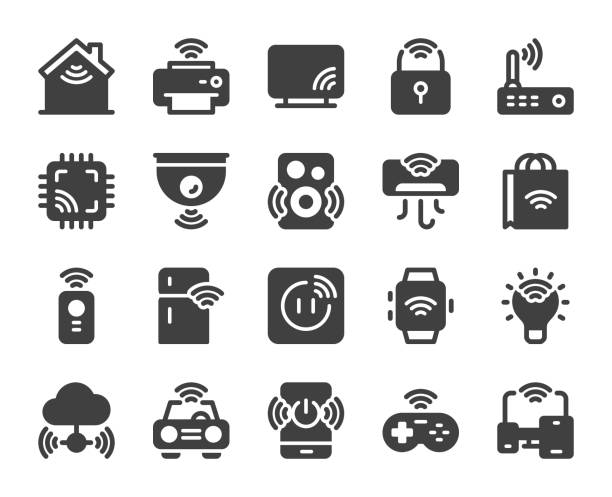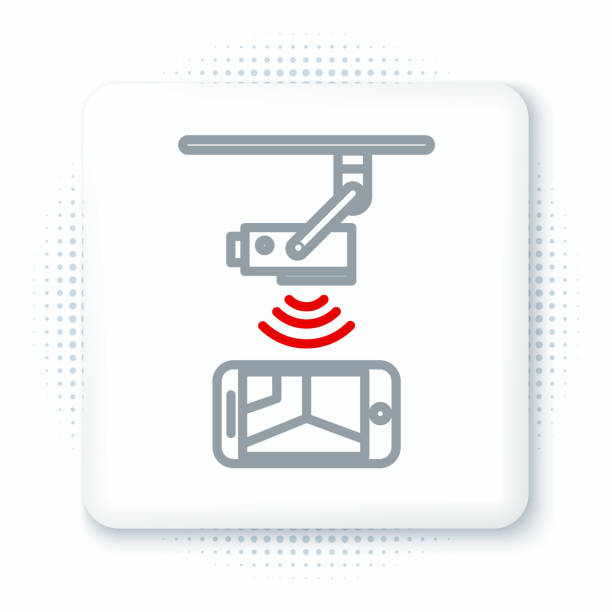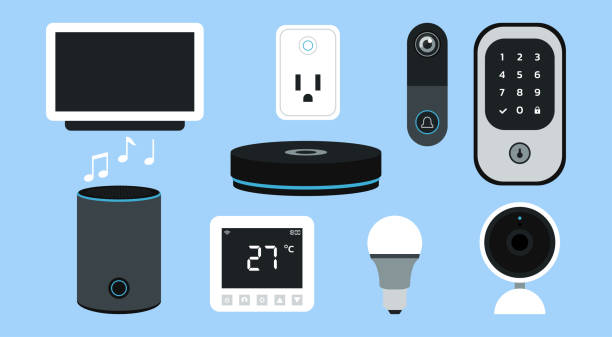Wireless vs. wired security cameras
As the world becomes more security-sensitive today, people and business people are employing security cameras to guard their premises. At the heart of these systems lie security cameras, which come in two main varieties: wireless and wired. The options between wireless vs. wired security cameras can greatly affect the performance, cost, and simplicity of installation of your surveillance system.

Understanding the Basics: Wireless vs. Wired Security Cameras
Wired security cameras are attached to cables to conduct the video feed and also to draw power. These cables normally interface a central recording appliance like the DVR (Digital Video Recorder) or the NVR (Network Video Recorder).
Wire-less security cameras transmit data over a wireless local area network commonly referred to as Wi-Fi to a receptor or your home network. They may still need a power cable if they are not related to a battery-operated device.
That being said, it is necessary to describe the main distinctions, so let’s continue with the comparison of wireless vs. wired security cameras.
Installation: ease and flexibility
Wired Security Cameras
Installing wired security cameras can be a more involved process.
- Needs cables to be installed at walls or ceilings, or may run freely along baseboards.
- May require professional installation, most especially for complex systems.
- It takes more time and effort than other types of signs to shift and alter the company or organization’s position when it has been fixed.
- Recommended for application everywhere, particularly in new constructions and in major remodeling or new construction projects.
Wireless Security Cameras
Wireless cameras offer greater installation flexibility.
- A good reason not to run video cables throughout your property
- Can be easily recloned whenever it is necessary
- and thus can be installed DIY in most cases.
- Perfect for people who rent an apartment or who don’t want to spend a lot of money on furniture.
- When it comes to wireless vs. wired security cameras, one of the parameters is often the ease of installation.
Here, reliability and signal strength were greatly appreciated.
Wired Security Cameras
Wired cameras generally offer more reliable performance.
- Wi-Fi interference and loss of signals are not a problem with the device.
- Consistent video quality
- Networking: They do not have a fear of being disconnected when the network connection changes.
Wireless Security Cameras
While convenient, wireless cameras can face some challenges:
- may interfere with other Wi-Fi equipment
- It indicated that signal strength depends on the number of walls between the device and the router itself, as well as the distance to the router and other Signal strength can be affected by walls, distance from the router, and other obstacles.
- Availability for hacking if there is a weakness in the network security system
Usually, the reliability factor in the wireless vs. wired security cameras debate tips the scales towards wired solutions where security needs can make or break the user experience.
Video Quality and Storage
Both wireless and wired security cameras can offer high-quality video, but there are some differences to consider:
Wired Security Cameras
- Specifically, the majority provide higher resolution and frame rates as a result of serial connections.
- Provides easy handling when recording is to be continuous.
- Usually comes equipped with more storage capabilities because of connected DVRs or NVRs.
Wireless Security Cameras
Wireless connectivity is known to reduce video quality due to differences in the bandwidth of the supplied Wi-Fi.
- Sometimes combined with cloud storage; in some situations, with local SD cards for the footage.
- Can be intelligent and have functionality like motion detection in order not to use up storage and internet bandwidth.
- Depending on the specific features you need for wireless vs. wired security cameras, consider the quality of the video as well as the storage size you may require.
Power sources and reliability

Wired Security Cameras
Usually transmitted through the same cable as video PoE Power over Ethernet.
That power is constant implies that there will be no time the battery will be dead and power unavailable.
No danger of power failures if connected to a backup power supply
Wireless Security Cameras
May need to run on power outlets nearby or may need batteries to be changed frequently.
Some models come with solar power for use in cases where the bicycles are going to be used outdoors.
- Battery cameras help continue surveillance after the source of electric power is cut off.
- The decision between wireless vs. wired security cameras typically simply depends on whether or not power sources are available or how often maintenance is preferred.
- Scalability and future composite revision.
Wired Security Cameras
- In distinguishing between Class A and Class B IEEE 802.11 (Wireless LAN) systems and organizing them into various ranks based on available bandwidth and network load, it is less of a problem to expand the network with extra cameras for increased coverage without compromising on the overall efficiency and reliability of the on-going network.
- Often support a higher resolution and the new technologies as they come into the market.
- May need a lot of work to update, transform, or replace system elements.
Wireless Security Cameras
- Easy to expand the existing camera networks.
- Has the ability to benefit from the enhancement in the technologies of Wi-Fi.
- May require an improvement on the quality of the Wi-Fi network, especially for purposes of supporting a number of high-resolution cameras.
Take into consideration significant security implications when planning wireless vs. wired security cameras for your property in the future.
Cost Considerations
The cost of wireless versus wired security cameras can vary significantly.
Wired Security Cameras
Installation costs more, especially if you hire a professional to do the installation for you.
Partially less or lower long-term costs with no costs on cloud storage space.
Possibly less perishable, and therefore the alternatives have to be replaced after some time.
Wireless Security Cameras
Some of the advantages include lower initial costs, especially when installing the system on a do-it-yourself basis.
Some of the potential continuous costs are the money expended on cloud storage subscriptions.
Might get to replace batteries and/or the whole unit more often.
Wireless cameras tend to come at a comparatively cheaper price point as compared to wired systems, though in certain regards the longer-term costs will lean towards the wired systems.
Security and Privacy Concerns
Both wireless and wired security cameras have their security considerations.
Wired Security Cameras
They will be comparatively safe from hacking because they are not tied to Wi-Fi.
Sometimes cables that are installed to support the system can be easily accessed in a physical sense.
It may also be easier for the intruders to be disabled or avoid the system more easily.
Wireless Security Cameras
- Implement sufficiently high Wi-Fi security measures to avoid the loitering of outsiders.
- From the results of the evaluation, some models contain more advanced encryption to secure the data transmission.
- Less complicated for the proficient attacker to disrupt and interfere with the signals.
To assess wireless vs. wired security cameras, one must not ignore issues to do with data security as well as privacy.

Here’s a concise difference table between wired and wireless security cameras:
| Feature | Wired Security Cameras | Wireless Security Cameras |
|---|---|---|
| Installation | Complex, requires cables | Easier, often DIY |
| Reliability | More reliable, no Wi-Fi issues | Can face signal problems |
| Video Quality | Higher resolution and frame rates | May degrade with Wi-Fi |
| Storage Options | Connected to DVR/NVR | Uses cloud or SD cards |
| Power Supply | Constant power via cables | Batteries or power outlets |
| Scalability | Harder to expand | Easily expandable |
| Cost | Higher installation costs | Lower initial costs, potential ongoing fees |
| Security | Less vulnerable to hacking | Susceptible to hacking |
| Best For | Permanent installations, large areas | Renters, portable setups |
Conclusion
The decision as to which wireless vs. wired security cameras to choose is predicated on circumstantial factors such as cost and the characteristics of the actual or proposed estate in question. Wired systems provide reliability and steady performance, which means that they are suitable for big territories or important commercial establishments that require security systems. Wireless cameras, on the other hand, are flexible and easy to install, great for renters or those who want a more portable system.
FAQs
Are wireless security cameras safer than wired security cameras?
Not necessarily. Sometimes wireless cameras can easily be hacked via the Wi-Fi, but most of the current systems employ secure encryptions on your data. Wired cameras have their peculiar security issues, among which include cable sabotage. Both types of security require correct installation and the right approach to addressing them.
What are the main differences among wired and wireless safety cameras?
Wired protection cameras are physically related to a recording tool or screen through cables, whilst wireless cameras transmit video and audio signals over Wi-Fi. This can have an effect on installation, reliability, and picture fine.
Which type of digital camera is simpler to install?
Wireless cameras are normally easier to put in since they don’t require tremendous wiring. However, they do want a robust Wi-Fi signal and might require battery adjustments or charging. Wired cameras may be extra complex to set up due to the need for cabling.
What are the blessings of stressed protection cameras?
Wired cameras regularly offer greater strong and reliable connections, better video excellent, and don’t rely on battery lifestyles. They are less at risk of interference and can be greater secure from hacking.

